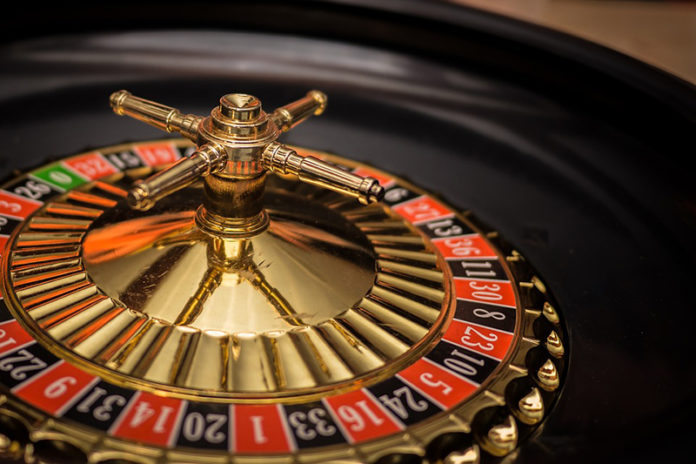Prospects for the city’s gaming industry, and related industries, are looking up, according to analysts at Bernstein. Positive points for the future of the city’s dominant industry include a moderation in the intensity of China’s anti-corruption campaign, an enhanced regulatory framework towards junkets, improvements seen in liquidity in China and increased non-gaming being a driver of visitation and growth in the mass segment.
These positive points are further fuelled by the future openings of MGM Cotai and SJM’s Grand Lisboa Palace, the ramp-up of the new properties on the Cotai Strip, further infrastructure development and the ‘resilience of the Chinese consumer’ – due to positive consumer spending sentiment despite the economic slowdown.
Mass-driven
Estimates are for seven per cent year-on-year growth for the fourth quarter of the year, as well as for full-2016 gross gaming revenue figures to be down four per cent year-on-year compared to 2015 – which hit MOP230.8 billion (US$28.9 billion). This is accompanied by estimates for an eight per cent compound average growth rate (CAGR) for full-year 2016 until full-year 2020, which places VIP CAGR at about three per cent and mass CAGR at about 11 per cent.
Year-on-year growth in the fourth quarter will be driven in large part by mass growth, which the analysts expect to increase 15 per cent in the fourth quarter, ‘driven by the ramp up of four newly opened projects’: Wynn Palace, The Parisian Macao and the upcoming MGM Cotai and SJM Grand Lisboa Palace. The analysts also note ‘slowing modest declines’ in the VIP segment, but positively point out that sustainable year-on-year revenue growth as well as profit growth ‘should continue to be the story around most’ of the operators.
The overall market earnings before interest, taxation, depreciation and amortisation (EBITDA) are expected to ‘continue to grow’, with a forecast that from end-2016 to end-2018 the market will experience CAGR of 14 per cent. The percentage of EBITDA from the VIP segment is expected to decline to about 12 per cent by the end of 2018 due to mass and non-gaming driving the figures.
Lifeblood
‘While there is an evident slowdown in the Chinese economy, we do not currently see a significant impact on the Chinese consumer,’ note the analysts. This continued ‘resilience’ is reflected in the data gathered by the analysts, showing particular growth in the lower and mid-tier Premium Mass segment, and driving an increase in sign-ups to casino loyalty programs, strengthened by the additional room capacity. Both liquidity and real estate price improvements have helped drive, in particular, the Premium Mass.
‘In recent months […] the anti-corruption campaign appears to have begun moderating,’ note the analysts, distinguishing that the ‘continued softening of the anti-corruption campaign would be very positive to recovery of high-end gaming’ in the city and that this moderation may increase in 2018 following the November 2017 Communist Party and government reshuffle.
In addition the enhancement of the regulatory framework in the city and stricter anti-money laundering regulations will ‘create some uncertainty […] but impact should be minimal’. However, despite this increased scrutiny on junkets driving consolidation – leading to 80 per cent of the junket market share being held by the top four junket operators – given high cost of compliance, the outcome could be positive for the MSAR, referencing recent comments by government officials on the positive contributions junkets have made to the city.
‘We view the positive commentary surrounding VIP to be reflective of the fact that Macau (and China) do not necessarily want to see large VIP revenue outflows going to foreign casinos (but rather retain the revenue and associated taxation in Macau)’.
The analysts also note that tightening anti-money laundering regulations in the city, in particular relating to the banking sector, ‘will likely make certain operations in foreign jurisdictions (outside of Macau) more difficult and may have the effect of shifting some VIP demand back to Macau’, increasing the city’s regional competitiveness.
Non-gaming
‘The future of Macau is supply-driven,’ note the analysts, ‘in particular, the nature of that supply (more hotel rooms, greater non-gaming features and experiences) will lead to rejuvenated growth’. This growth is long-term, with expectations that by end-2020 the market will reach US$27 billion in gross gaming revenues, with mass making up 62 per cent.
‘While non-gaming will never be a significant component of Macau industry revenues, non-gaming is becoming a more important driver of visitation and Mass growth,’ note the analysts, stating that the hotel, entertainment and retail options provided by the concessionaires are ‘critical for the sustainability of overnight Mass visitation’. Non-gaming revenues are expected to make up over 10 per cent of gross gaming revenues by 2018-end, note the analysts, demonstrating a CAGR of nearly 17 per cent from 2015 to 2018.
























